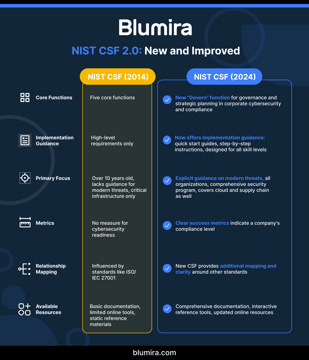Going Beyond SLCGP
State and local government IT teams likely already know about the State and Local Cybersecurity Grant Program (SLCGP). This program, announced in 2022, will provide a total of $1 billion in funding over a four-year period to support state and local efforts to address cyber risks to their information systems. That program provides an excellent opportunity for resource-strapped teams. And, with our guide, you can ace the grant application and improve your chances of acquiring funding for your program.
And more good news – the SLCGP isn’t the only place IT teams in state and local governments can get funding for cybersecurity projects.
Other Grant Programs for Cybersecurity Funding
Funding is also available in places you may not expect. Funds from various other grant programs—not specifically created for cybersecurity—can be used toward aspects of a cybersecurity program, according to the Government Accountability Office (GAO).
While the names and focus of these grant programs may lead you to think otherwise, savvy organizations explored the fine print and took advantage of these unique opportunities. Past grantees have used funds from the following programs to purchase cybersecurity tools, conduct cybersecurity training for employees, create disaster recovery plans, and more.

Specifically, past recipients of the Homeland Security Grant upgraded an outdated network infrastructure to improve network security. And, a former recipient of the Port Security Grant purchased an advanced firewall solution. Find more examples of how state and local governments took advantage of these opportunities in the full GAO report about existing cybersecurity programs published in late 2023. While anonymized in the report, there are solid examples of governments using these unexpected funding sources for cybersecurity.
Review the list below to discover current funding opportunities available to state and local governments, and find programs relevant to your specific cybersecurity needs. Keep tabs on grants.gov and federalgrantswire.com for application information and to discover even more opportunities.
Grant Programs for State/Local Governments
Election Security Grant Program
(Provided by the Election Assistance Commission) - Provides funds for compliance requirements under Section 101 of the Help America Vote Act of 2002 and to improve the administration of elections for federal office, including to enhance technology and make election security improvements
Homeland Security Grant Program
(Provided by FEMA): Focuses on enhancing the ability of state, local, tribal, and territorial (SLTT) governments to prevent and respond to terrorist attacks.
Transit Security Grant Program
(Provided by FEMA): Provides funds to transit agencies to protect critical surface transportation infrastructure and the traveling public from acts of terrorism. Local governments have used cybersecurity funding from this grant to secure and protect critical infrastructure from cyber attacks.
Port Security Grant Program
(Provided by FEMA): Provides funds to state, local, and private sector maritime partners to support increased port-wide risk management and protect critical surface transportation infrastructure from acts of terrorism, major disasters, and other emergencies.

Emergency Management Performance Grant Program
(Provided by FEMA): Provides funds to assist SLTT emergency management agencies to implement the National Preparedness System and to support the National Preparedness Goal of the nation.
Tribal Homeland Security Grant Program
(Provided by FEMA): Provides funds directly to eligible Tribes to strengthen their capacities to prevent, prepare for, protect against, and respond to potential terrorist attacks. According to the GAO report linked above, a former recipient of a Tribal Homeland Security Grant Program used funding for vulnerability scanning software and services.
Grants to States Grant Program
(Provided by the Institute of Museum and Library Services): Provides financial assistance to develop library services throughout the states and U.S. territories. This grant program has previously been used to fund phishing training and simulations.
Museums for America Grant Program
(Provided by the Institute of Museum and Library Services): Supports the achievement of championing lifelong learning, strengthening community engagement, and advancing collections stewardship and access. Funding from this program has been used for cybersecurity training, disaster recovery plan implementation, and cloud-based backup systems.
Byrne Discretionary Community Project Funding/Byrne Discretionary Grant Program
(Provided by the Department of Justice): Provides for improving the functioning of the criminal justice system, preventing or combating juvenile delinquency, and assisting victims of crime. According to the GAO report, “The Byrne Discretionary Community Project/Byrne Discretionary Grant Program allows funding for network switches, cybersecurity software, and physical security, such as external cameras.”
Edward Byrne Memorial Justice Assistance Grant Program
(Provided by the Department of Justice): Provides for hiring additional personnel and/or purchasing equipment, supplies, contractual support, training, technical assistance, and information systems for criminal justice. Recipients can use funds from this program for cybercrime training and to hire cybercrime analysts and investigators.
National Criminal History Improvement Program
(Provided by the Department of Justice): Provides funding to assist states and Tribes with finding ways to make more records available to the National Instant Criminal Background Check System.
Highway Planning and Construction
(Provided by the Department of Transportation): Assists the states in providing for the construction and improvement of highways and bridges. While this is primarily used to support physical infrastructure, previous grantees have used funds for cybersecurity—including implementing measures to protect a transportation highway system from cybersecurity threats.
State Electronic Data Collection Grant
(Provided by the Department of Transportation): Provides funds to modernize state data collection systems and to enable full electronic data transfer.
Capitalization Grants for Drinking Water State Revolving Fund
(Provided by the Environmental Protection Agency): Provides funds to states and Puerto Rico to establish loan programs that finance drinking water infrastructure improvement projects. Really? Yes. While not specifically related to cybersecurity, the funds may be used to support any tangential cybersecurity needs related to drinking water infrastructure improvement projects.
Department of Transportation Funds
In addition to the programs listed above, the Department of Transportation also offers grants that could fund cybersecurity projects, including the Urbanized Area Formula Grants, the State of Good Repair Grants Program, Formula Grants for Rural Areas, the Tribal Transit Program, the United States Marine Highway Program, and the National Infrastructure Project Assistance program. According to a DOT official, as stated in the GAO report linked above, these grant programs primarily support the planning and construction of physical infrastructure, but also may require that grantees incorporate cybersecurity enhancements in each project.
For more information on cybersecurity related to state and local government and Blumira, check out Revolutionizing Government Cybersecurity: Ottawa County's Journey with Blumira and Incident Response Steps for State and Local Government.
Just starting your journey with security? You may also find the Blumira Threat Detection & Response Assessment valuable.
More from the blog
View All Posts
NIST Cybersecurity Framework Implementation for Mid-Market Companies: 2025 Update
Read More
Customer Story: District of Sparwood
Read More
Security expert Nick Brigmon discusses Florida’s new cybersecurity standard bill
Read MoreSubscribe to email updates
Stay up-to-date on what's happening at this blog and get additional content about the benefits of subscribing.